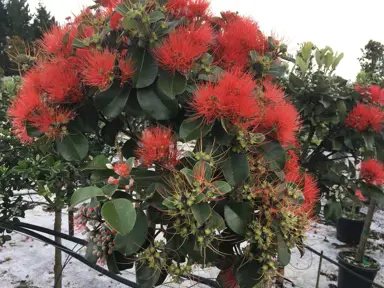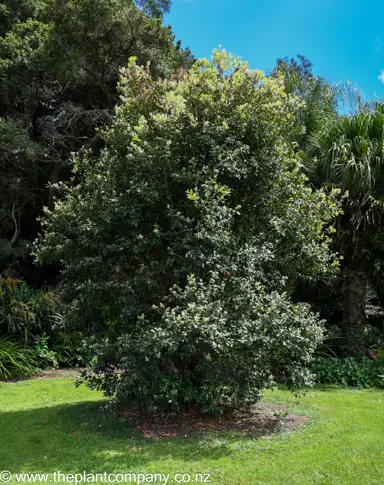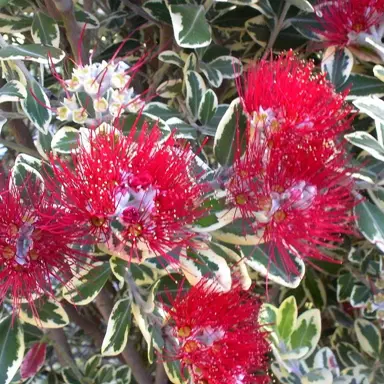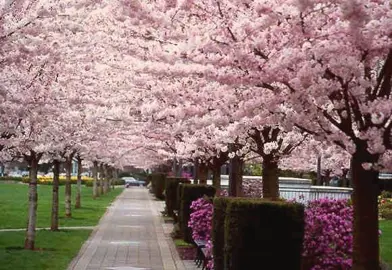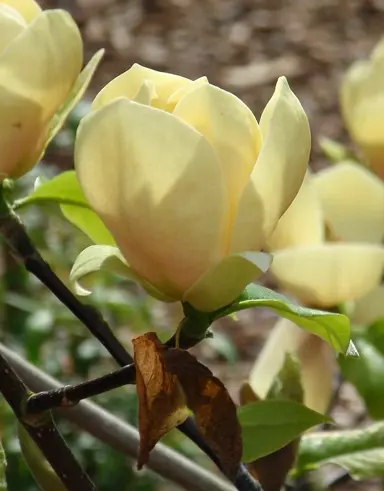Metrosideros Spring Fire
Pohutukawa
Metrosideros Spring Fire is a variety of Pohutukawa grown for its showy flowers. The red flowers are produced en masse through summer and are complemented with glossy, blue-green foliage. This NZ Christmas tree typically grows to 5 m tall and 3.5 m wide. Metrosideros Spring Fire is an excellent choice for coastal gardens, adding to a mixed planting, or for avenue planting.
